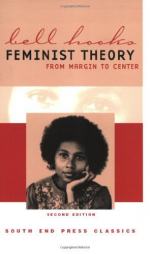
|
| Name: _________________________ | Period: ___________________ |
This quiz consists of 5 multiple choice and 5 short answer questions through Chapters 6 and 7.
Multiple Choice Questions
1. In the Preface to the first edition (1984), what general theme does the author present?
(a) A history of the feminist movement.
(b) Her ideas about high school education for girls.
(c) The central theory of her work.
(d) Her mother's life story.
2. For the author, what is the relationship between traditional beliefs about the family and society at large?
(a) She thinks that the family is a haven from society.
(b) She credits changes in society with destroying the traditional family structure.
(c) Traditional beliefs about the family and the relationships within it are grounded in ll the other forms of discrimination at work in American society.
(d) She does not see any relationship between the two.
3. In general, the title of Chapter 1, "Black Women - Shaping Feminist Theory," relates to which of the following ideas?
(a) It doesn't relate to any of the aforementioned ideas.
(b) Black women are important in shaping the feminist movement and broadening the previously limited perspectives in feminism.
(c) Black women's lives can serve as raw material for white women when they create feminist theory.
(d) Black women can create their own feminist theory; they do not need to participate in the broader movement.
4. According to the author, how has the relationship between feminism and the family often been portrayed?
(a) Feminism has often been portrayed as anti-family and pro-freedom.
(b) Feminism is often perceived as pro-family.
(c) The family is accepted as a necessary evil.
(d) Feminism does not seem to address this issue very clearly.
5. What notion about women and power do both sexist and traditional feminist culture share?
(a) That women experience and wield power differently from men.
(b) That women do not understand money.
(c) That women should not be in positions of power.
(d) That motherhood is a woman's right of passage.
Short Answer Questions
1. In Chapter 3, "The Significance of Feminist Movement," the author discusses which of the following themes?
2. From which position (or perspective) does the author claim to write in her analysis of feminism and its social manifestations?
3. The author opens the Preface to the first edition of the book with a description of which group and its experiences in life?
4. Which elements define the ideal family for the author?
5. How does the author view housework?
|
This section contains 459 words (approx. 2 pages at 300 words per page) |

|




